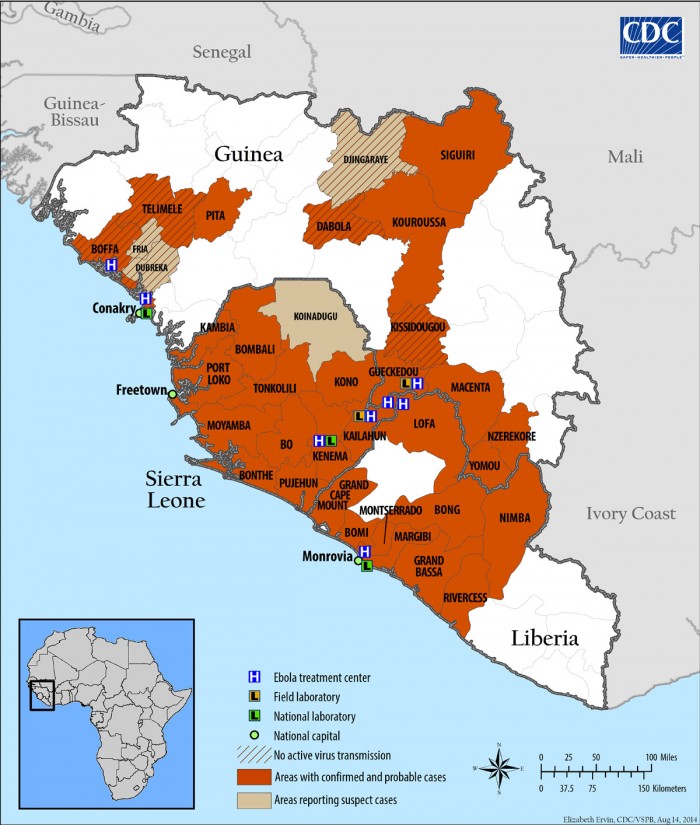Daily life in Sierra Leone has drastically changed for residents with the growing fear of Ebola and all that comes with this terrible viral invasion. People have had to learn how to operate daily tasks amongst this fear. Running normal everyday errands such as getting groceries, has become a risky activity. For example, in the last few weeks random check points throughout Freetown have been set up to measure body temperatures in an effort to prevent the spread of Ebola. If you're selected to be tested you are first asked to clean your hands. Then, your body temperature is measured with a non-contact laser thermometer that gets a reading from your forehead. If you have a fever, you have no choice. Immediately you are taken into quarantine until it is determined if your fever is from Ebola or not. People are avoiding the hospital and roads even if they are sick due to other illnesses, such as malaria, in fear they will contract Ebola from being near an infected person or seized and taken from their loved ones without notice. These random check points for Ebola symptoms has made moving around the city a risk. Restrictions on traveling throughout the country have been in place some time, affecting the already fragile economy. Worse, borders have been closed preventing commerce. With people staying inside they are unable to go shopping, leaving the countries families and individuals feeling the financial stress of lower incomes.
Despite this bad news and worrisome situation, we are happy to report that as of now Golu has no reported cases of Ebola. What we've learned over the past few months is that education about this virus and how to avoid spreading it, is the most useful tool in prevention. The residents of Golu have been well educated on how to prevent the spreading of Ebola and have been exercising these precautions to keep their community safe. Though it is good news to hear Golu has no Ebola cases, they too have fallen victim to the other challenges that come out of preventative care and country wide travel restrictions.
In Golu, one of the primary sources of income and resources is going to the weekly market in the nearby junction town, Gerehun and to the closest city, Bo, to buy and sell goods and food products. Gerehun has no reported cases of Ebola but a nearby village, Jebehun, has one confirmed case. Bo now has 31 confirmed cases of Ebola so this has scared many Golu residents from making the trek to Bo's market. Unfortunately, fear as well as the prevention and quarantine practices are leaving this small community with fewer resources and income. In addition to this, it's rainy season so the community resource center's main source of revenue - cell phone charging stations - are moderately being used due to lower solar power reserves and financial difficulties making communication in and out of the village difficult.
Overall throughout the country everyone is feeling the affects of this terrible virus and all the other issues and challenges that come along with it. This country has been through so much and somehow the people of Sierra Leone are able to remain positive and have proven to the world time and time again that they are resilient when faced with challenges that would most likely devastate many other countries. We know that Sierra Leone will bounce back from these hard times and pick up where they left off. The Village Link remains committed to helping the countries underrepresented communities to gain self-sufficiency once again.
Below are the current facts and figures for Sierra Leone according to the CDC and WHO, along with a couple interesting videos on the virus.
-
The Ministry of Health and Sanitation of Sierra Leone and WHO reported a cumulative total of 1026 suspect and confirmed cases, including 935 laboratory-confirmed cases, and 422 deaths.
- Cases have been confirmed in 11 of 12 Sierra Leone districts.


